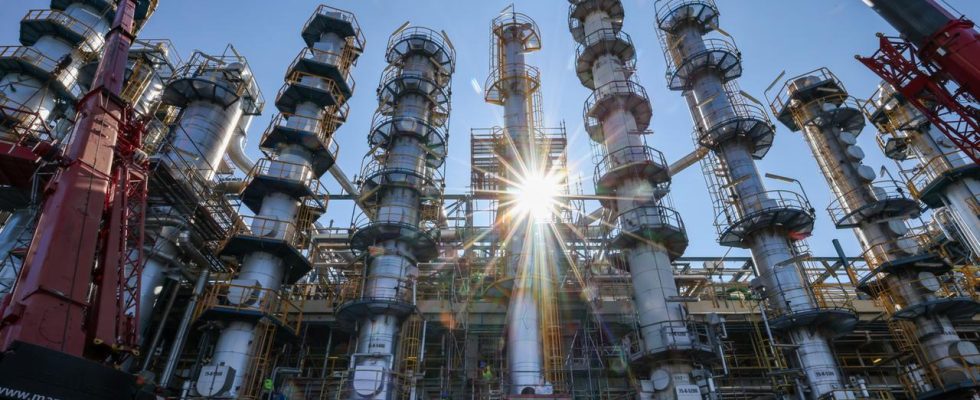At a chemical summit, representatives of the industry and the federal government agreed on the “necessary framework conditions”. However, associations and countries criticize what these look like remains vague.
At a top-level meeting with the chemical industry in the Federal Chancellery, companies, social partners and politicians agreed on the “necessary framework conditions” for more planning security for sustainable growth and competitiveness. In view of the war in Ukraine, weak demand and “high energy and raw material prices, the industry is currently facing very big challenges and is increasingly under international competitive pressure,” the federal government announced after the meeting.
Business and unions disappointed by “chemical summit”
Today, Chancellor Olaf Scholz (SPD) hosted representatives from the chemical industry, including the heads of Covestro and Evonik, as well as several prime ministers. Politicians, industry and social partners have, among other things, reaffirmed their “common goal of a competitive, sustainable chemical location in Germany,” according to the traffic light coalition’s statement. The exchange on the general conditions of the chemical industry should be continued “with the aim of a chemical pact”.
In addition, it was agreed on an accelerated expansion of the hydrogen network, the expansion of self-consumption privileges when using power supply systems, the reduction of bureaucratic hurdles, the targeted promotion of innovations and the securing of skilled workers. In addition, the federal government is committed to an efficient electricity market design at EU level and against blanket bans on entire classes of substances.
Business associations and the chemical union IGBCE reacted with disappointment to the results of the “chemical summit”. Markus Steilemann, President of the Chemical Industry Association (VCI), said after the meeting that the most pressing issue, a “bridge electricity price” to reduce high energy costs, could not be addressed. IGBCE chairman Michael Vassiliadis demanded that the question of a bridge electricity price must be decided quickly. “We have initial signals that the situation will also cost employment and that there may be company closures and relocations.”
“5 to 12” for the chemical industry in Germany
The federal states also appeared disillusioned. NRW Prime Minister Hendrik Wüst (CDU) said: “It’s 5 to 12 in Germany.” He can understand why company representatives and trade unionists are disappointed with the outcome of the top-level talks. The federal government was clearly aware of the problem. “But the solution to the problem was not concretized in a way that would have been appropriate to the situation.” They want to continue the dialogue and work on a “chemical pact”.
Like the other countries, the chemical industry and the union, Wüst is calling for a temporarily limited, state-subsidized industrial electricity price (“bridge electricity price”). The Greens and the SPD parliamentary group are in favor, Scholz is skeptical, the FDP is against it. IGBCE chairman Vassiliadis emphasized that Scholz had not rejected a “bridge electricity price”, but neither had he made a promise.
The federal government stated that it was aware of the importance of competitive electricity and energy prices for the chemical industry. “It is in discussions with Parliament about proposals on how the electricity supply can be designed in such a way that electricity prices can be stabilized and planning security can be improved,” it said, with a view to discussions between the coalition factions.

